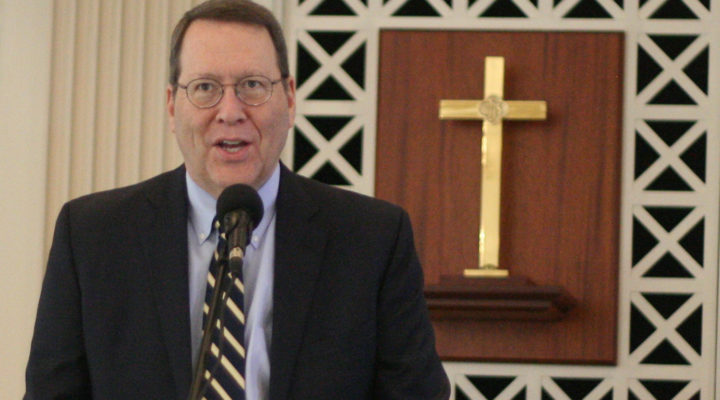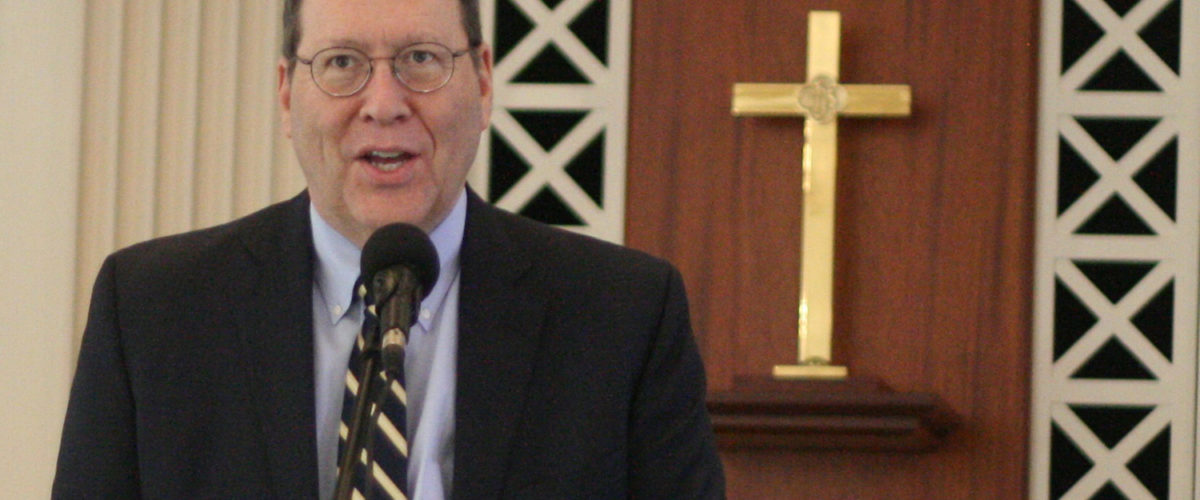The Cooperative Baptist Fellowship will continue to make sexual orientation a consideration in some, but not all, employment decisions with a new hiring policy and implementation plan adopted Feb. 9 by the CBF Governing Board.
The Governing Board voted unanimously to replace an 18-year-old policy barring “the purposeful hiring of a staff person or the sending of a missionary who is a practicing homosexual” with a new policy that does not mention sexual orientation.
Another motion to accept the 43-page final report — including an implementation plan — of a two-year Illumination Project which was assigned to listen to various voices in CBF life on matters of human sexuality also passed, but with one opposing vote and one abstention.
While the CBF constitution and bylaws gives ultimate responsibility for implementation of all policies, including hiring, to the executive coordinator, the Illumination Project report “recognizes that the CBF will consider human sexuality as one factor among many for some positions, including field personnel, those who supervise field personnel and certain ministry/missions leadership positions at CBF Global in Decatur.”
The Illumination Project committee found the “vast majority” of CBF churches do not have policies explicitly prohibiting employment on matters of human sexuality, and it maintained that the new policy is consistent with that.
“However, at this time in CBF life, less than a handful of our congregations have called pastors who identify as LGBT,” the report continues. “Likewise, in the implementation of the hiring policy, the CBF office in Decatur will reflect the actual practice of most of our congregations.”
Among other factors, the implementation plan stipulates that the CBF will employ persons for leadership positions “who practice a traditional Christian sexual ethic of celibacy in singleness or faithfulness in marriage between a woman and a man.”
The “celibacy in singleness or faithfulness in marriage” criteria will apply to CBF Global Missions field personnel and their supervisors. Other positions on the Decatur staff, however, are open to “Christians who identify as LGBT.”
“Our global partners (within and beyond Baptist life) have decisively rejected movement toward hiring or supporting LGBT field personnel or the inclusion of LGBT persons in ordained leadership,” the report says. “This implementation procedure reflects and respects the practices of an overwhelming number of our global partners.”
Governing Board member Jim Somerville said he voted for the hiring policy but not the Illumination Project report.
“I just felt like there was language in the report that felt discriminatory,” said Somerville, senior pastor of First Baptist Church in Richmond, Va. “I thought if we had spent a little more time we could have written it in such a way that it would have gained wider acceptance.”
As it stands, Somerville said, “I think there will be people who can’t live with it.”
Carol McEntyre, senior minister at First Baptist Church in Columbia, Mo., went on record as abstaining in the vote to accept the Illumination Committee report but afterward declined to discuss why.
Under the new policy, the CBF “will employ only individuals who profess Jesus Christ as Lord, are committed to living out the Great Commandment and Great Commission, and who affirm the principles that have shaped our unique Baptist heritage.”
Preference will go to applicants “who are active members in good standing of CBF churches as well as those who have demonstrated an active participation and contribution to the missions, ministries or other initiatives of the Fellowship and its partners.”
The policy expects CBF employees “to have the highest moral character, displaying professionalism and a commitment to the highest ethical standards.” That includes “acting with integrity, being a faithful steward of resources, speaking truth in love, embracing accountability, facilitating fairness, supporting and encouraging peers, nurturing a community of respect, and establishing collaborative relationships.”
Employees must “live out their Christ-centered relationship both inside and outside the workplace, serving as active members of their local church as well as through service to their community.”
CBF Executive Coordinator Suzii Paynter said the new policy shifts the focus from sexuality to Jesus.
“We are a Fellowship, a big tent of faithful believers and autonomous, innovative churches in partnership,” Paynter said. “While we do not agree on everything, we have shown Baptists and others that we can come together in a relatively short amount of time, focus on what unites us and come out of it poised for a bright future.”
The Association of Welcoming and Affirming Baptists called the new hiring policy “a step in the right direction” but said it falls short of the threshold of “total inclusivity.”
“AWAB is disappointed that CBF considers this acceptable,” the group said in a press release moments after the vote.
During the two weeks prior to the formal release, CBF leaders previewed the Illumination Project report with about 800 clergy and laity across the Fellowship, said Moderator Shauw Chin Capps.
Previous story:
CBF moderator says proposed LGBTQ hiring policy meets Fellowship Baptists ‘where they are’


